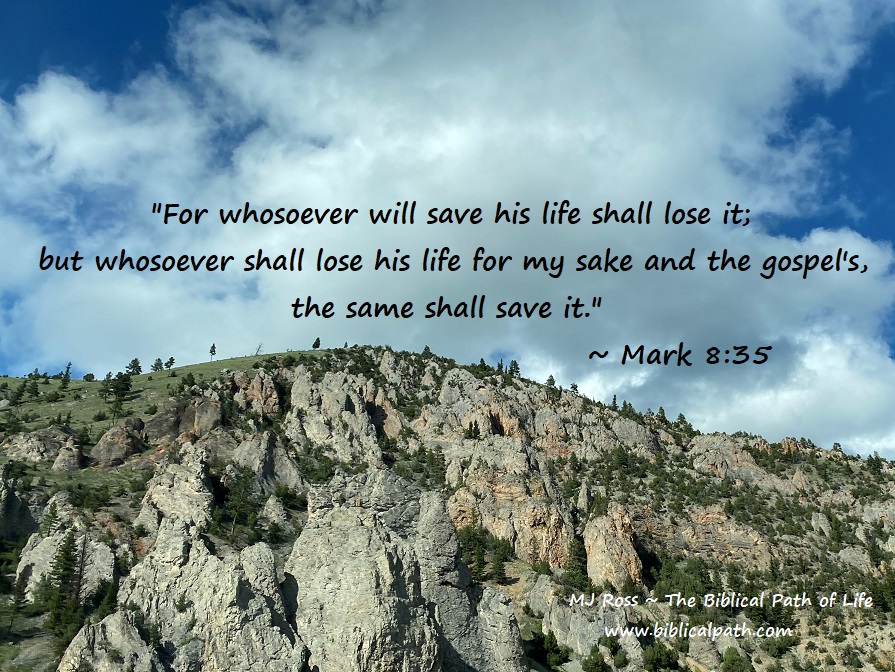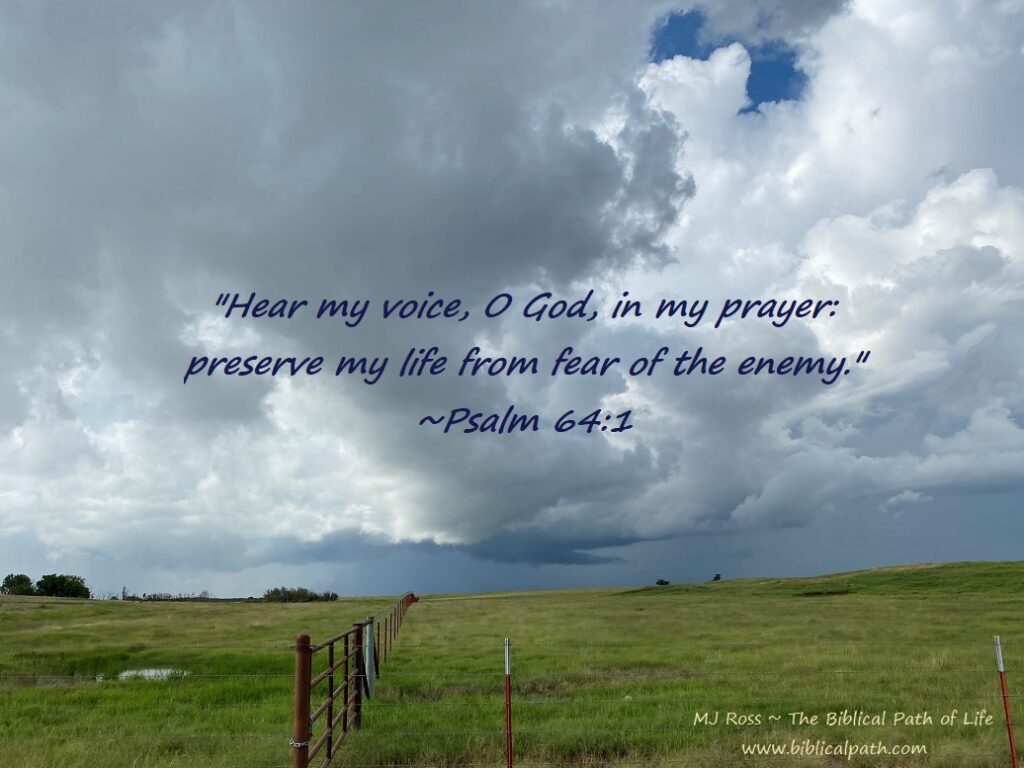
“For whosoever will save his life shall lose it; but whosoever shall lose his life for my sake and the gospel’s, the same shall save it.”
Mark 8:35
Christians have an enemy. Read what the Bible calls him: “… that old serpent, called the Devil, and Satan, which deceiveth the whole world…” (Revelation 12:9). Satan deceives the whole world. What are some of his ploys?
Remember the first thing Satan said to Eve in the garden: “Yea, hath God said” (see Genesis 3:1). He questioned God’s Word. Satan is described as subtle (means crafty, sly). He wants you think negatively about God, to doubt God and His Word, to question what God said. Satan wants you to think suspiciously about God. The best lie sounds the most like the truth. Satan does not want you to know the truth. He would deceive you today (or at least get you to tune out) so you cannot hear God. Satan is a liar. He denies God’s truthfulness.
Satan is a murderer – he wants you to be his victim. Remember what he told Eve: “And the serpent said unto the woman, Ye shall not surely die” (Genesis 3:4). He lied about the fact of death.
Read what Jesus said to the religious leaders. “43. Why do ye not understand my speech? even because ye cannot hear my word. 44. Ye are of your father the devil, and the lusts of your father ye will do. He was a murderer from the beginning, and abode not in the truth, because there is no truth in him. When he speaketh a lie, he speaketh of his own: for he is a liar, and the father of it. 45. And because I tell you the truth, ye believe me not” (John 8:43-45). Satan uses lust. He is a murder and there is no truth in him for he is a liar.
It is important to understand the deceitfulness of sin (brought by lust). Those who know the least about sin are the ones who have been blinded, they have a reprobate mind of whom the Bible warns us (see Romans 1:18-32). In our world, people are encouraged to experiment with sin, experience it just a bit. If it is good and ok to do, you will find out. If it isn’t so great, you can just step away from it. They will tell you that experience is the best teacher: not somebody else’s word about it. However, when it comes to sin, experience is the worst teacher. Those who know the least about sin are the ones who are the deepest into sin. These people are most often the ones who draw others into their sin. They cannot tell light from dark (see John 1:1; John 3:19). They think they are the one who decides what is good or bad.
Remember what the Bible teaches: “Be not overcome of evil, but overcome evil with good” (Romans 12:21). And also: “Beloved, follow not that which is evil, but that which is good. He that doeth good is of God: but he that doeth evil hath not seen God” (3 John 1:11).
Most people want to become their own god where no one tells them what to do, where to go, what to believe, or what to say. Christians are not to buy into the devil’s lies. God wants us to be like God – not become our own god. See what we are to do: “As for me, I will behold thy face in righteousness: I shall be satisfied, when I awake, with thy likeness” (Psalm 17:15).
What do we understand about God? There are so many, but read the following two: “Delight thyself also in the LORD; and he shall give thee the desires of thine heart” (Psalm 37:4). And “For the LORD God is a sun and shield: the LORD will give grace and glory: no good thing will he withhold from them that walk uprightly” (Psalm 84:11). In spite of what these verses teach, Satan wants you to doubt the goodness of God and think negatively about Him. He encourages people to think carelessly about God, and not to believe Him.
What is Satan’s end? “And the great dragon was cast out, that old serpent, called the Devil, and Satan, which deceiveth the whole world: he was cast out into the earth, and his angels were cast out with him” (Revelation 12:9). He will be cast out, eventually spending eternity in the lake of fire. “And the devil that deceived them was cast into the lake of fire and brimstone, where the beast and the false prophet are, and shall be tormented day and night for ever and ever” (Revelation 20:10).
How does one overcome the devil, the old serpent, the dragon? Read what Jesus told the people and his disciples: “34. … Whosoever will come after me, let him deny himself, and take up his cross, and follow me. 35. For whosoever will save his life shall lose it; but whosoever shall lose his life for my sake and the gospel’s, the same shall save it. 36. For what shall it profit a man, if he shall gain the whole world, and lose his own soul? 37. Or what shall a man give in exchange for his soul? 38. Whosoever therefore shall be ashamed of me and of my words in this adulterous and sinful generation; of him also shall the Son of man be ashamed, when he cometh in the glory of his Father with the holy angels” (Mark 8:34-38). Those who defeat the devil’s influence in their lives must love not their lives. Christians must love Jesus so much that they will be willing to die for their faith in Him.
Have you quit listening to the lies of the devil, becoming one willing to lose your life for Christ’s sake?



